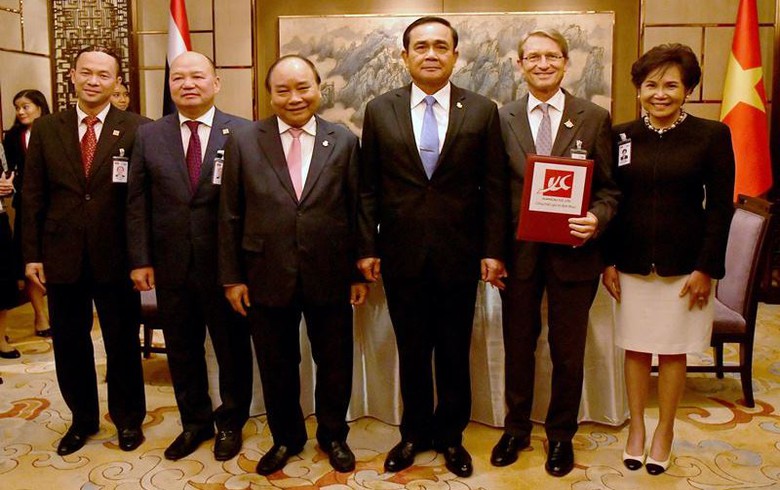Vietnam
Exposing a growing rift in Vietnam’s one-party regime, the communist-controlled National Assembly has rejected the government’s US$56 billion plan to develop a high speed north-south railway.
The project, set to cost 60% of gross domestic product (GDP) and based on
The government has recently initiated several mega-projects, but this one was surprisingly voted down by the assembly by a 178-157 vote on June 19. The unprecedented result does not mean that
The National Assembly consists almost entirely of Communist Party members with just a few token independents. Convening for several weeks twice a year, its members tend to lack the expertise and attention to play an active political role. According to one well-placed source, the party’s 14-member politburo, the de facto highest power, declined to express a position on the railway project and passed the issue to the assembly instead.
Stung by a series of controversial decisions in recent years, including one concerning the expansion of
During the vote, a diverse coalition rose in opposition to the corporatist government faction led by Prime Minister Nguyen Tan Dung, which initiated and strongly backed the multi-billion dollar railway plan. While the particular vote of each legislator has not been made public, delegates more closely associated with the military reportedly opposed the project. The military is believed to be worried that the big-ticket mega-project would divert funds from armed forces modernization programs.
Certain respected academics serving in the National Assembly questioned the cost-benefit of the bullet train, pointing to
However, some believe the chief concern over the railway project was the potential for corruption involving Japanese contracts and aid. It would not have been the first time. In the 2008 PCI scandal, four Tokyo-based consultants pleaded guilty in
The potential for graft on the high-speed railway project – from selling land at inflated prices to kickbacks on equipment purchases – would have been unprecedented. According to one Japanese diplomat, Dung, Planning and Investment Minister Vo Hong Phuc and Transportation Minister Ho Nghia Dung were all potentially well positioned to profit personally from the rail project.
There is no evidence that any of the mentioned ministers were involved in foul play with the proposed project. However, the scheme was derailed at a time the Communist Party leadership faces growing public criticism over corruption issues. Although the party rejects checking and balancing democracy, it is sensitive to public perceptions and pressures.
For instance, when the central government decided to quadruple the size of
Last year,
The bullet train project, some suggest, could have been the final straw. The National Assembly’s refusal of the project was ultimately a rejection of Dung’s growing affinity for expensive mega-projects. Squeezed between rising public criticism and respected intellectuals calling for more responsible governance, and with intra-party rivals exploiting the corruption card for political gain, the prime minister’s camp now finds its prospects in question.
Some now believe Dung and the key backers of his favored projects could lose their posts at the next party congress, scheduled for January 2011. Whether intentional or not, Vietnam’s one-party National Assembly has cast its first no-confidence vote against this or any other government.
